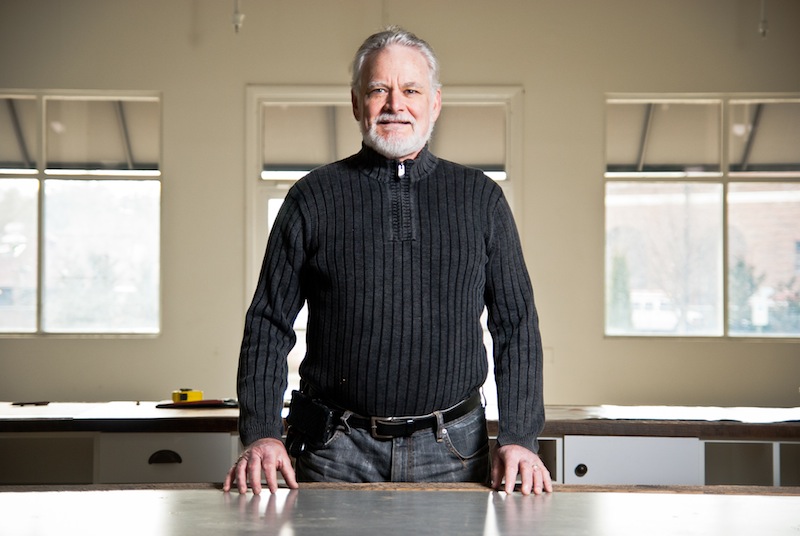
Talking with John Swann requires a certain mental flexibility. His ideas skirt contradiction, combining business sense with idealism. “I'm hoping to marry those two philosophies into a successful business,” he says.
Swann is in the midst of planning a 11,000-square-foot natural-food store, Katuah Market, in Biltmore Village. The space, 2 Hendersonville Road, next to Ichiban, has been vacant for about two years.
In his 25 years in Asheville, Swann has been a higher-up at Earth Fare and Greenlife, as well as the owner of Bean Mountain Tofu in the early '90s. Currently, he owns Maple Creek Farm in Yancey County, where, until a few years ago, he produced maple syrup.
He's also worked in grocery cooperatives throughout the Southeast, and he's now a stalwart proponent of small business. “I came to a point where I felt that the entrepreneurial model was better suited to my personal style than the cooperative model,” he says. “But I've never lost the idealistic basis that I came from.”
Katuah Market, which could open as soon as August, will build on the foundation Swann established at Greenlife. In fact, he's recruited much of the team that opened that store for his new venture. “Our niche is for people who truly care about what they eat and are looking for the highest-quality ingredients and local ingredients,” he says. “We're going to raise that bar back up to where it was with Greenlife before when it was independent, and even higher.”
With those standards, Katuah Market will emphasize prepared foods and include a deli, hot and cold bars, and brick-oven pizza. There will be enough seating for 120 people, inside and outside, as well as grab-and-go portions. Everything will be prepared from scratch, in-house, Swann says.
The store's grocery component will be based on Appalachian Grown produce and meat, a standard developed by Appalachian Sustainable Agriculture Project, where Swann currently serves as vice-president. Dry goods will be local, too; there's no house brand to interfere with shelving and product placement, Swann explains. In general, selections will be driven by consumer demand, so Katuah will respond to customers' requests for special products. “We will be, as Greenlife used to be, completely community-driven,” he says. “The decisions that are made in our store will be made within the four walls of the store, and that's as far as it goes.”
While the store is not a cooperative, like the markets where Swann got his start, it will have a profit-sharing program to distribute a portion of company gains among employees. The benefits of a motivated and well-compensated staff will, in turn, pass on to shoppers, Swann explains. “You wind up with a different type of employee than you do at a large, corporate box,” he says. “They're more passionate; they're more engaged; they're more values based. They're higher maintenance from a management point, but that's a good thing.”
Most of all, Swann plans to focus on staying small and connecting with the community. He never felt right about selling Greenlife to Whole Foods, he explains. His former business partner, Chuck Pruett, owned a controlling number of shares in the business, and the decision to sell came down to company politics, he says.
This time around, he's rooting himself in Asheville, as the name of his business suggests. “‘Katuah’ is a Cherokee Indian word, and it's the word they use for their homeland, for the Southern Appalachian mountains,” Swann says. “I wanted a name that resonated with the history of this area.”



YAY! Swann’s way of running a health food store is sorely missed. This is especially true with Whole Food taking over Greenlife and Duane Reade taking over Earthfare. In both stores it’s like a treasure hunt to find the real food.